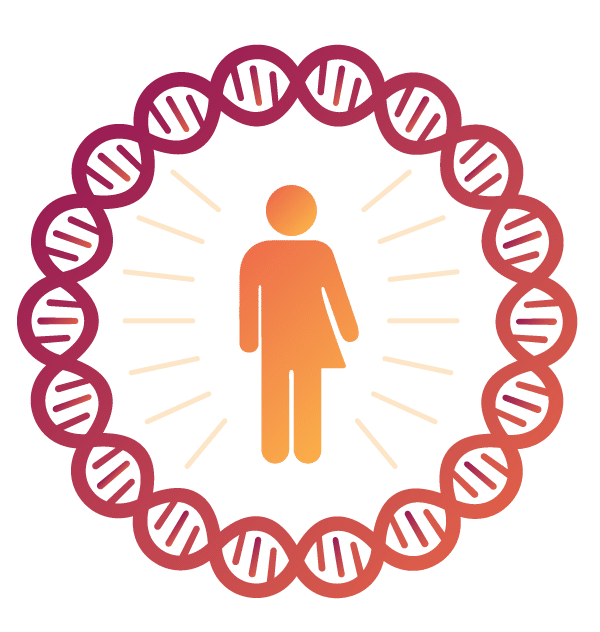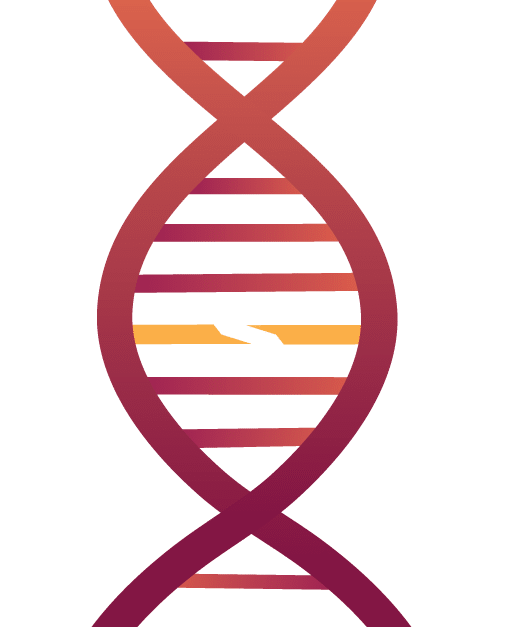Treatment

TREATMENT
The class of inherited variants we discovered and continue to research can help identify the best treatment choices for patients.

Current cancer treatment limitations
Current cancer treatments focus on simply destroying the cancer, with treatments based on the type, location, stage, and genetics of the tumor alone. This approach to treatment certainly does work, as all those who have been cured of cancer can attest. More people are living longer after their original cancer diagnosis than ever.
However, there is still another problem for cancer patients. Cancer treatments are hard on the human body and often lead to negative side effects. While there are risks of negative side effects with any treatment, medicine needs to move its focus from killing cancer alone to a whole-person view.

Evolution of cancer treatments
The good news is that cancer treatment is evolving. We are learning how to fine-tune treatment for each individual.
One way is through genetic testing. While the genetics of the tumor are already tested with current cancer treatment, that doesn't let us see the whole picture. We must also look at a person's individual genetics, not just their tumor's.

Cancer treatments with the whole person in mind
Our research here at MiraKind focuses on genetic testing of the individual's normal genetic code. We have found essential information in a recently discovered part of the DNA, called noncoding RNA.
Your DNA not only builds your body and tells it how to function, but is also intimately involved in overseeing the repair and stress response programs that manage damage to your body and its DNA. Noncoding RNA is the guide behind these programs.
People have differences (variations) in their DNA that make them unique. If these variations are in important parts of the noncoding RNA, they can impact how the programming works, and thus how the body responds to damage.

At the beginning of our research, we discovered the first variant in a specific section of the noncoding DNA. As our research continued, we found many more, and these type of variants are now referred to as "mirSNPs". MirSNPs seem to predict how a person responds to specific cancer treatments by telling us how well they will repair damage from these treatments, as well as how their immune response to these treatments will affect them.
Our research not only includes trying to understand more about how these variants affect our bodies, but has led to the development of tests for these variants.
These tests can give us important information on whether someone has a high or low risk of developing cancer or has a higher risk level for side effects from certain cancer treatments. A patient, with their doctor, can then use this information to tailor a person-specific treatment plan, either by better prevention or by choosing treatments that are the safest for the patient.

The KRAS-variant
The KRAS-variant was the first noncoding RNA found to be involved with cancer and identifies people at higher risk of cancers of the breast, ovaries, lungs, gallbladder, and chronic lymphocytic leukemia (CLL). Through past research, we have discovered how this variant affects your risk of developing these cancers and how to help mitigate those risks.
We also found that cancer drugs can affect people who carry the KRAS-variant differently. Certain types of medications work better than others for KRAS-variant patients.
For example, one study found that a chemotherapy drug called Cisplatin does not work well for those who carry the KRAS-variant.42 Other research shows a certain type of targeted cancer drug, Cetuximab, works better for them.
Find out if you carry the KRAS-variant by access testing through MiraKind →
Prostate Cancer
PROSTOX
PROSTOX is a genetic test for prostate cancer patients to determine if they carry certain noncoding variants in their DNA. Based on extensive research, carrying these variants predicts an increased risk of developing long-term urinary side effects from radiation of the prostate, called GU toxicity.
Unfortunately, it's not just the tumor that receives the radiation, other tissues in the area are also affected, as radiation must pass through them to get to the prostate. These effects often translate into different types of negative side effects. Long-term genitourinary side effects can include - frequency and/or urgency of urination, incontinence, blood in the urine, pain, narrowing of the urethra, and bladder spasms. These effects show up three to six months or later after radiation therapy and occur in 15-20% of those who receive it.
PROSTOX can help patients and their doctors know if certain treatments put them at a higher or lower risk of developing these long-term side effects. With this information, the treatment plan can be tailored to reduce the risk of these side effects.
Prostate cancer patients can access PROSTOX through MiraKind →
Past research always points the way for future research. While PROSTOX is excellent at predicting late GU effects from radiation we are continuing to apply these noncoding variants to other areas treated with radiation, as well as to other cancer treatments that have unwanted side effects.




